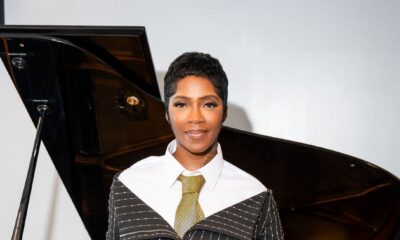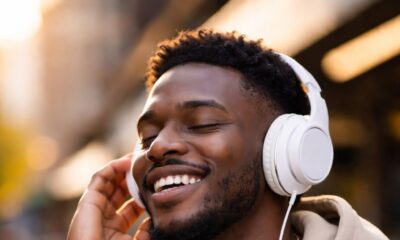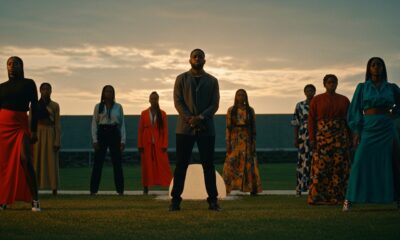Events
“Music is One of the Greatest Tools to Communicate Ideas” – Made Kuti on Global Citizen Live & His Journey So Far
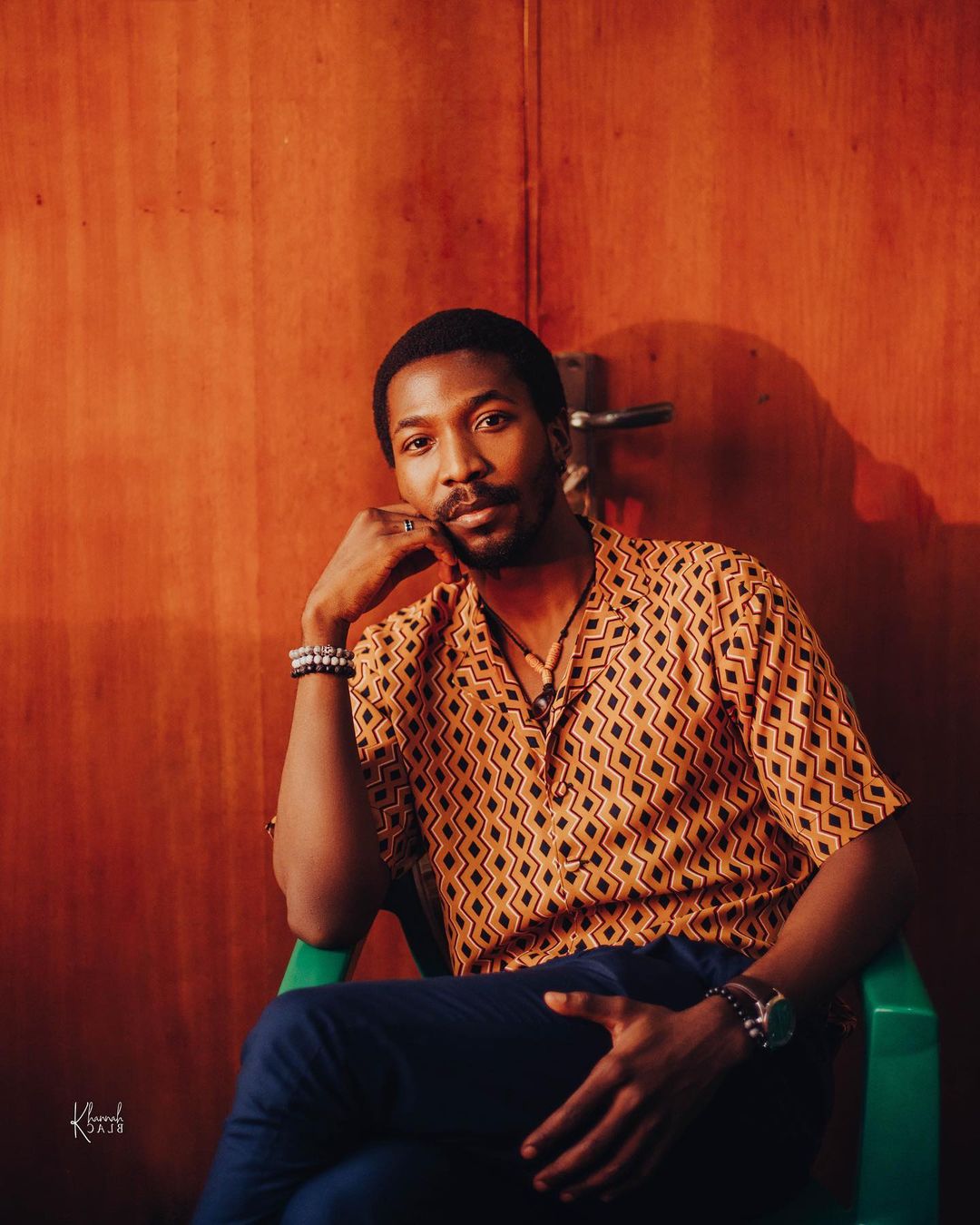
Made Kuti wearing @braimien & @mrdbello| Photography by @khannahblack
Made Kuti isn’t new to the music-making business, however, he kicked off his career as a professional musician with the 2020 debut single “Free Your Mind“, two years after graduating from the Trinity Laban Conservatoire of Music and Dance in London – his legendary grandfather, Fela Anikulapo Kuti‘s alma mater.
One of the advantages of studying music composition for Made was that he got to understand the basics of most instruments, and he put this knowledge to good use on the “Legacy+” joint album with his father Femi Kuti.
Made single-handedly played the conga, shekere, cowbell, woodblock, drums, percussion, guitar, bass, keys and piano in the rhythm section; trumpets, tenor, alto and baritone sax in the horns section while laying both lead and backing vocals on the body of work which was released in February.
Despite growing up with more musical influences than one can presume, Made’s decision to become a musician is a personal choice. “My kind of music is genuine but it was definitely sparked by my surroundings. I had a choice”. Alongside Femi Kuti and Tiwa Savage, Made contributed to Coldplay‘s album “Everyday Life“ which earned a Grammy nomination for Album of the Year.
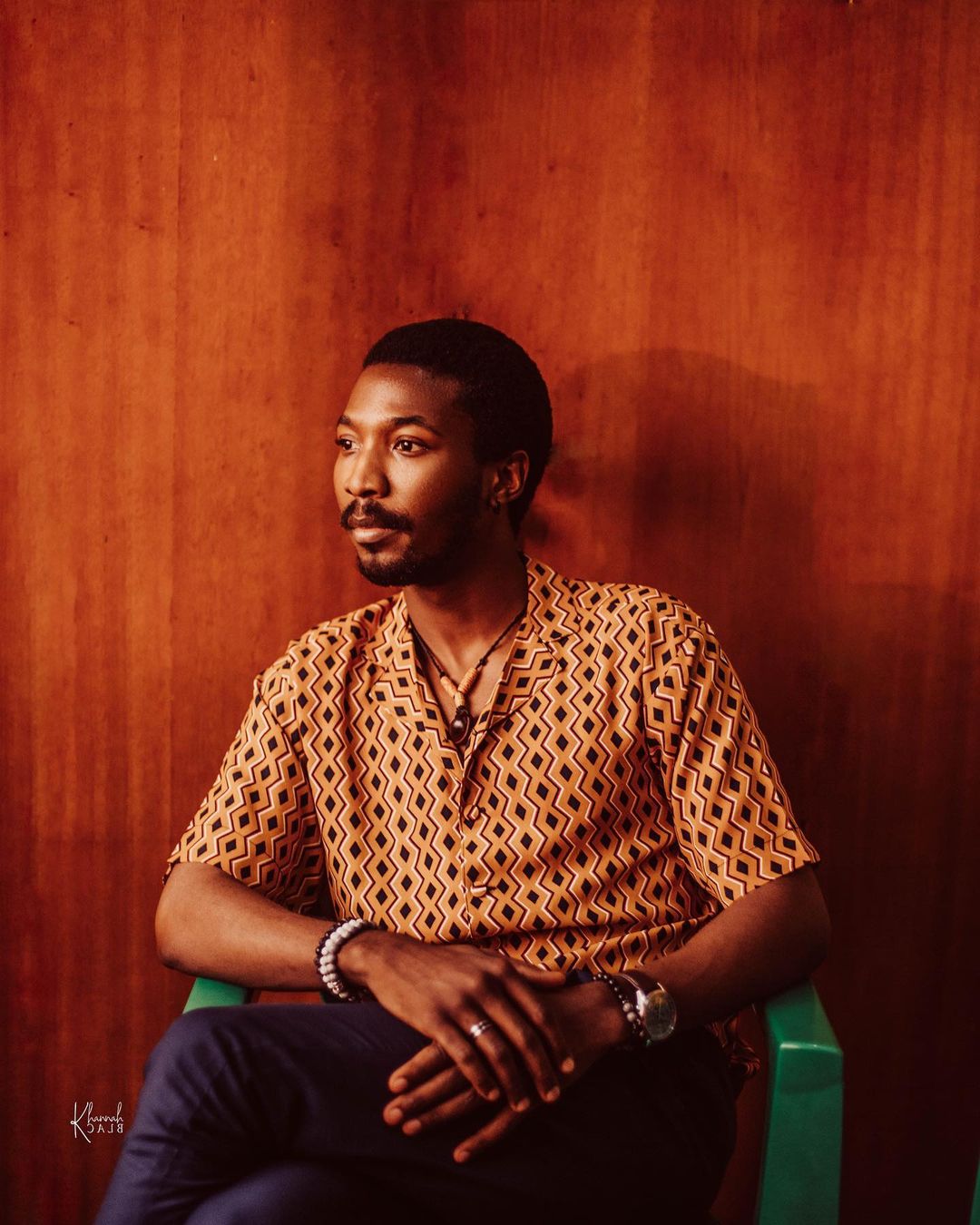
Made Kuti wearing @braimien & @mrdbello| Photography by @khannahblack
The Afrobeat singer believes music is one of the greatest tools to communicate ideas and a potent factor in our lives. So, he is carrying on with the message himself and his family represent… one that suits this year’s Global Citizen Live theme: “Defend The Planet, Defeat Poverty”.
This time, Made is sharing his message on a very global scale as he performs today, 25th of September at 6 pm WAT alongside Femi Kuti, as well as Afrobeat heavyweights Davido and Tiwa Savage.
We had an insightful conversation with Made about the Global Citizen Live, growing up in the New Afrika Shrine surrounded by so much music, making music and performing with his father.
He also shed light on why he chose his career path, the highlights of his journey, and how rising music stars can use their voices and platforms for social good.
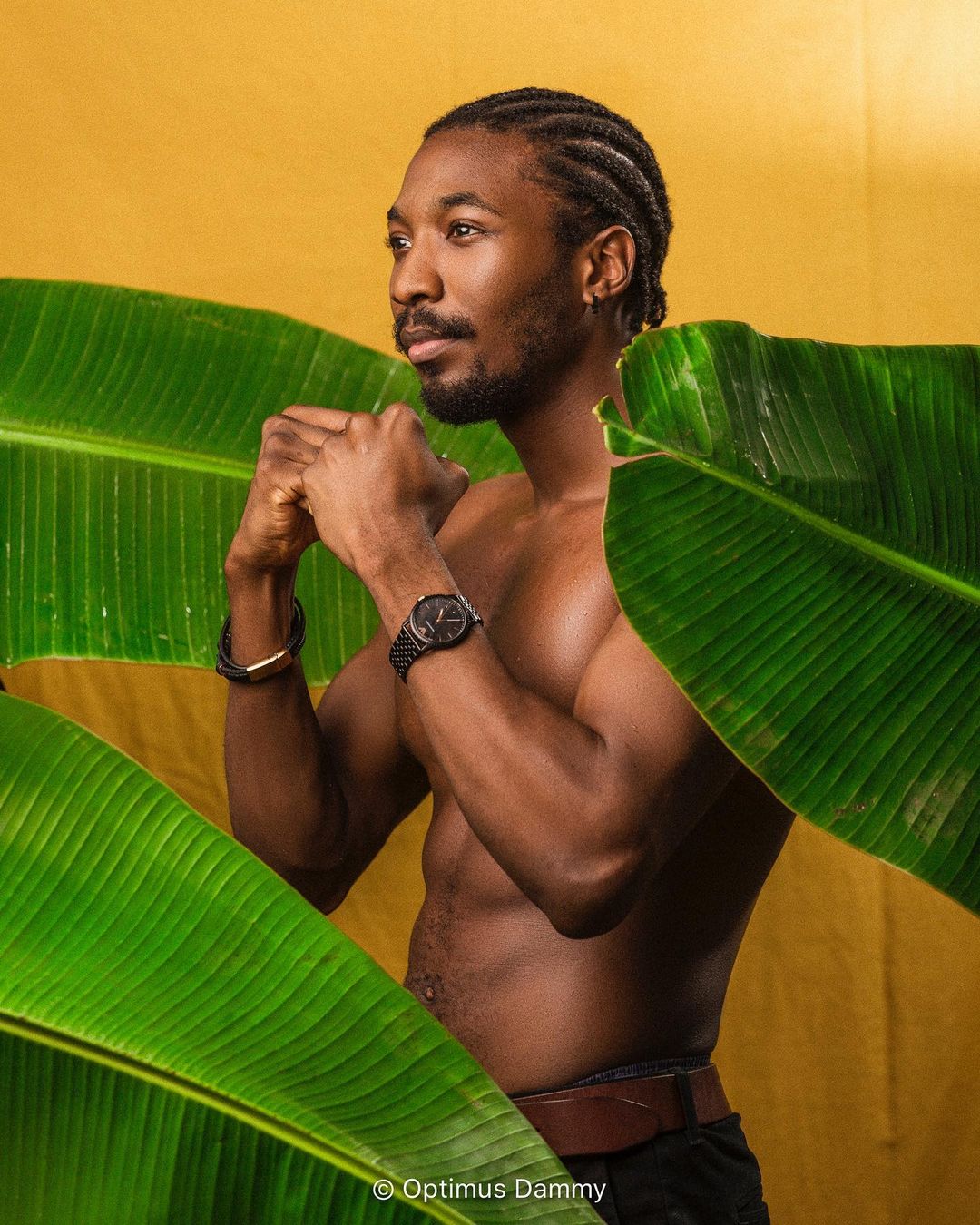
Photography by @optimus_dammy
You’ll be performing at the upcoming Global Citizen Live Lagos event. The theme is tailored towards ending COVID-19, the hunger crisis, resuming learning, protecting the planet, and advancing equity for all. How potent is music as a tool for social change in relation to this theme?
One of the most popular music slogans today is Fela’s quote: “music is the weapon of the future”, and I think that represents just how capable the arts and what we consider to be a culture that propels the mentality of people forward, takes them back to understanding their history and makes them aware of the situation around their communities. The bonds they share with the arts, the culture that they share.
Music is so nuanced that it has very objectifiable effects on the people around it. But then, there’s the subconscious that it touches as well, in ways that move us on a daily basis that we don’t understand. There are songs that we can explain why we like. There are songs that we like and we can’t really understand, our love for them grew over time.
But when you listen to things from way back, it reflects so well immediately to the experiences that we’re having at present moments. So, I think music in its purest form is nuance. Something so nuanced has the potential to be very effective in ways that it can communicate ideas and inspire people.
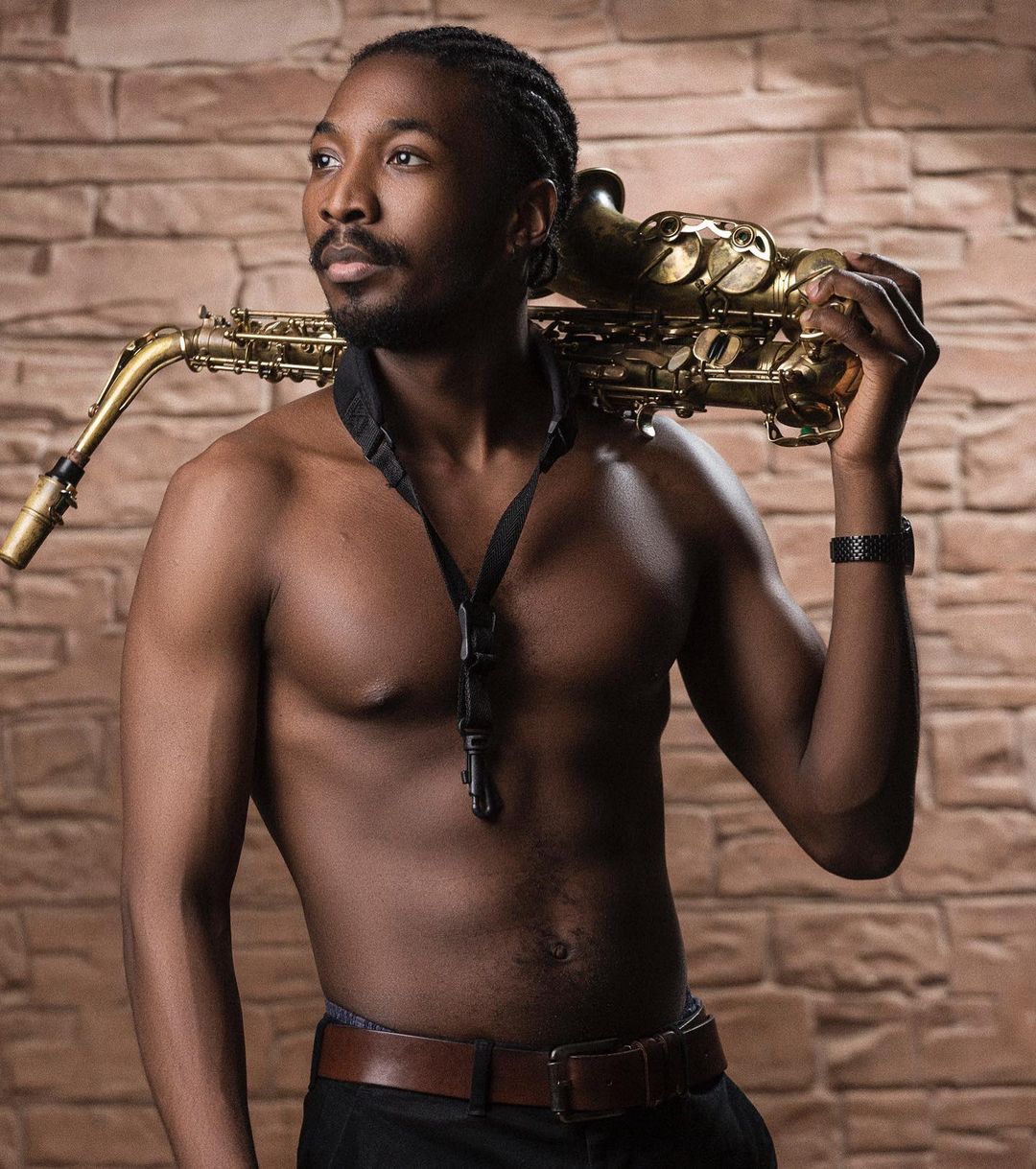
Photography by @optimus_dammy
And because it’s so inspirational, I think music is one of the greatest tools to communicate ideas, passions for subjects that can be either political, can be economic. No matter how you look at it, it’s such a potent factor in our lives.
What does performing alongside your father Femi Kuti, Davido and Tiwa Savage on a platform like this mean to you?
It’s less about what it means to me and more about what I feel like I’m able to contribute to the global citizen’s agenda. Which is about defending the planet, defeating poverty which is all the things that myself and my family represent and that I can do it on a very global scale is a precious thing for me.
On that note, I’ve also been opportune to play at global citizens before with my father so this is my second event with global citizens but this is my first on my own. Still, it’s less about me and more about the agenda.
Being raised in a family of music stars; growing up in the New Afrika Shrine and playing in your dad’s band all these years. Do you feel like your path was already mapped out for you or you chose it yourself?
It’s both because it’s not like it was chosen for me, but there’s no way that growing up in an environment that is so musical, I wouldn’t pick up influences or immediately be influenced by it.
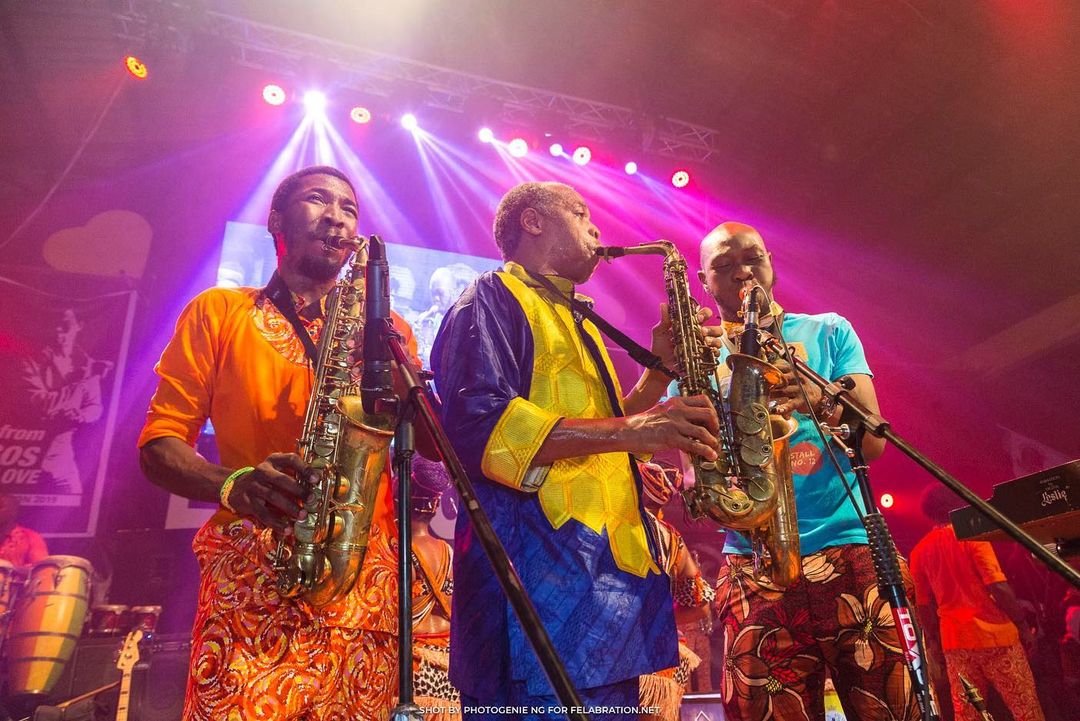
Made, Femi & Seun Kuti | Photography by @ibrahim.a.sule
It’s almost like an imposing influence because on Tuesdays, Thursdays, Fridays and Sundays, I used to watch my dad play at the shrine four times a week, which is most days of the week.
And I had had to connect that with my own personal life. With going to school, at the same time I used to follow him on tours, I used to follow him to the recording studio. So, all of that immediate access to the musicality of my father influenced my ideas for what I wanted to do with my own life.
Honestly, I would have done it sooner but I wanted to wait until I was sure that I could handle, not the pressures of the music business, but the tentacles. So I spent 7 years in London and 4 years at Trinity Laban Conservatoire of Music and Dance. Having spent that time there, I was writing by choice because it takes all your time studying music.
You’re learning history, you’re learning applied musicianship. Different forms, different styles. You decide to pick up different instruments, you’re composing very long pieces for a large orchestra
I wanted to be able to fully absorb the experience I was having. I knew that when it’s done, I can focus on my career. I just wanted to wait for a time that I can focus on my career.
You officially made your debut into the music industry with “Free Your Mind” in 2020. How long have you nurtured this and why did you decide to start making music at that time?
Honestly, I would have done it sooner but I wanted to wait until I was sure that I could handle, not the pressures of the music business, but the tentacles. So I spent 7 years in London and 4 years at Trinity Laban Conservatoire of Music and Dance. Having spent that time there, I was writing by choice because it takes all your time studying music.
You’re learning history, you’re learning applied musicianship. Different forms, different styles. You decide to pick up different instruments, you’re composing very long pieces for a large orchestra
I wanted to be able to fully absorb the experience I was having. I knew that when it’s done, I can focus on my career. I just wanted to wait for a time that I can focus on my care
Seeing as music is a major part of your relationship, what does releasing a joint album (“Legacy+”) album with your dad mean to you?
My dad is my greatest influence musically and philosophically as well. His ideologies are what really reflect my daily life. Having the opportunity to step out in my career, my first bold step was a very experimental album. I was trying different things with each song. I played all the instruments myself.
It was less about how successful it would do but more about musicianship. The fact that I could do that and release my album with one of the greatest musicians out of Africa in the past several decades, with the support that he also brought to the table.
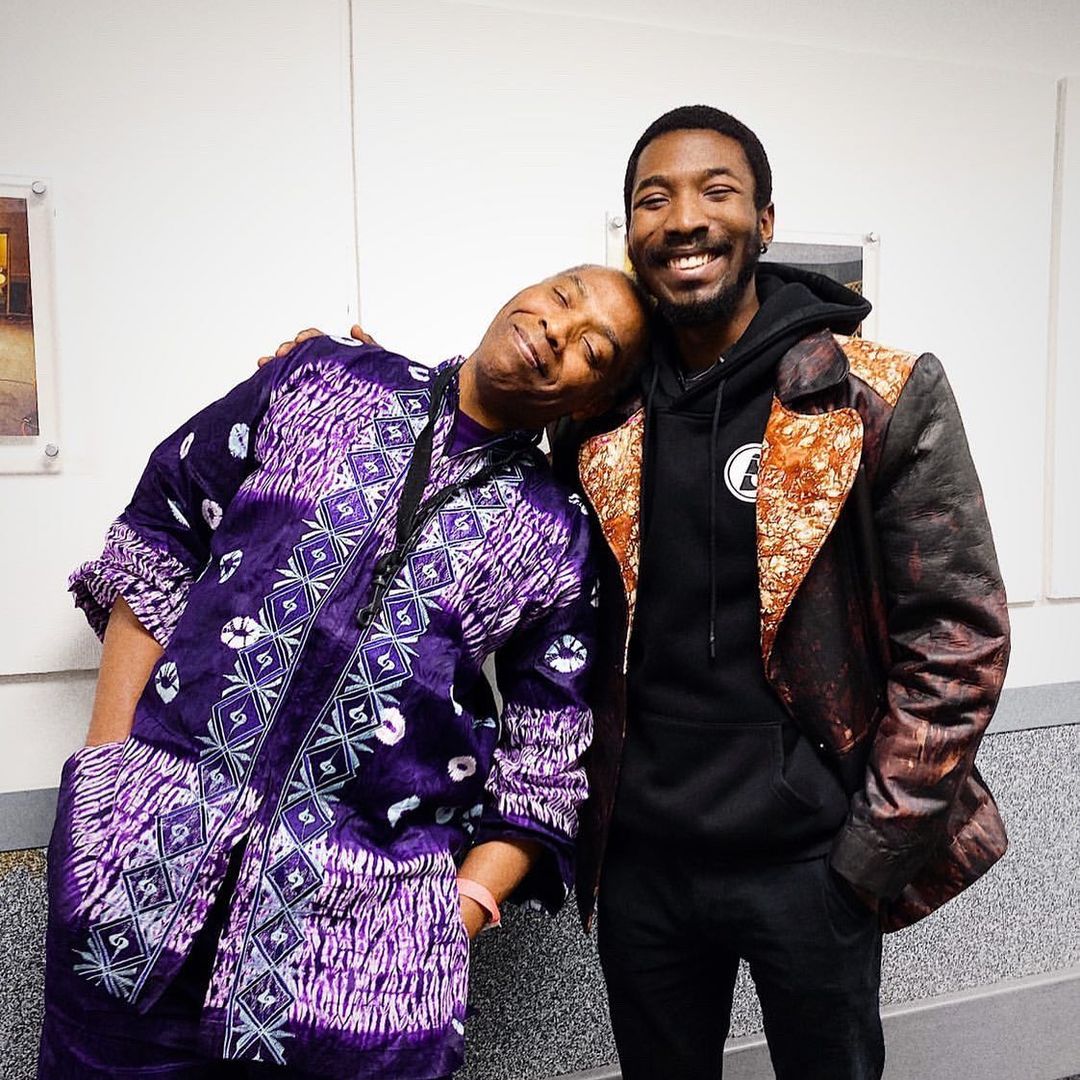
He made sure that I had the liberty to play my music as I like. He allowed me to write all my music myself. When I said I wanted to play all the instruments in 16 days, he took the risk of believing that I could do it.
To be able to step out into the industry and into the world under the person that I respect the most was very special to me. And everything henceforth would not be less of an emotional experience, but it would be hard to top that. Maybe when I release with my own child then that would make up for it.
What made the creative process of this album with your dad different from every other time you’ve made music together?
I don’t think I’ve ever made music with my dad, I’ve only ever played music with him. He composes all his music himself, he doesn’t allow any external assistance or contribution. In the previous album “One People One World,” I played bass and keys, but I played his bassline and his keyboard line so it’s not like I added creative ideas, I just played.
The creative process of this album was very straightforward. He wrote his side of the album, I wrote my side. He recorded his, I recorded mine. Very straightforward.
How can rising music stars use their voices and platforms for social good?
They have to decide if it’s worth the sacrifice for them firstly. The problem with contrast music is that there’s not a large enough market for it so if you’re ready to go through the struggles of daily hardship, less sales, less support, less fan base, less everything. And you believe that the message you’re pushing across is more important than all those things.
When you make that choice for yourself, then nothing and nobody can say anything else to inspire or diminish your mentality. That choice is something I think a person really has to make for themself.
What has been the highlight of your career so far and why was it so special?
I think my career is too short to find a moment. I’ll say performing with the band in April or March. But my first show was very special because it was my debut and my dad opened for us; He played with the band first and then we came in. It was a very special day.
I think the next one would have been Terra Kulture. It was a strictly by invite showcase and had us with some very special guests that were there: Niniola, Don Jazzy and a few other people. My dad was there of course. Right after that would be the gigs I’ve done at “A Night with Made Kuti and the Movement” at the Shrine.
Now, the brand is being recognized and we’ve been able to work with very talented musicians and rising stars (Lady Donli, Tomi Thomas and Yega). To be able to be at a point in my age amongst my peers with a message that is really strong and to be able to deliver it with such talented musicians as well; everything about those events are very special.
That we can share the stage together. I know we’ve all had our own perspectives and experiences of what Nigerian life is like. So we’ve all come from different backgrounds, but the love for music is what brings all of us together at that venue, at that place, for that amount of time… then we just go our separate ways from there.
Do you ever need to take a break from playing so many instruments and being surrounded by so much music? How do you unwind during these times?
I’ve never felt like I needed to take a break from music. I’ve only ever felt like I needed to take a break from one category of music. Either it’s performing or music-making. If I relax from performing, then I’m recording. If I’m relaxing from recording them I’m practising and if I’m relaxing from practising, I’m somewhere else.
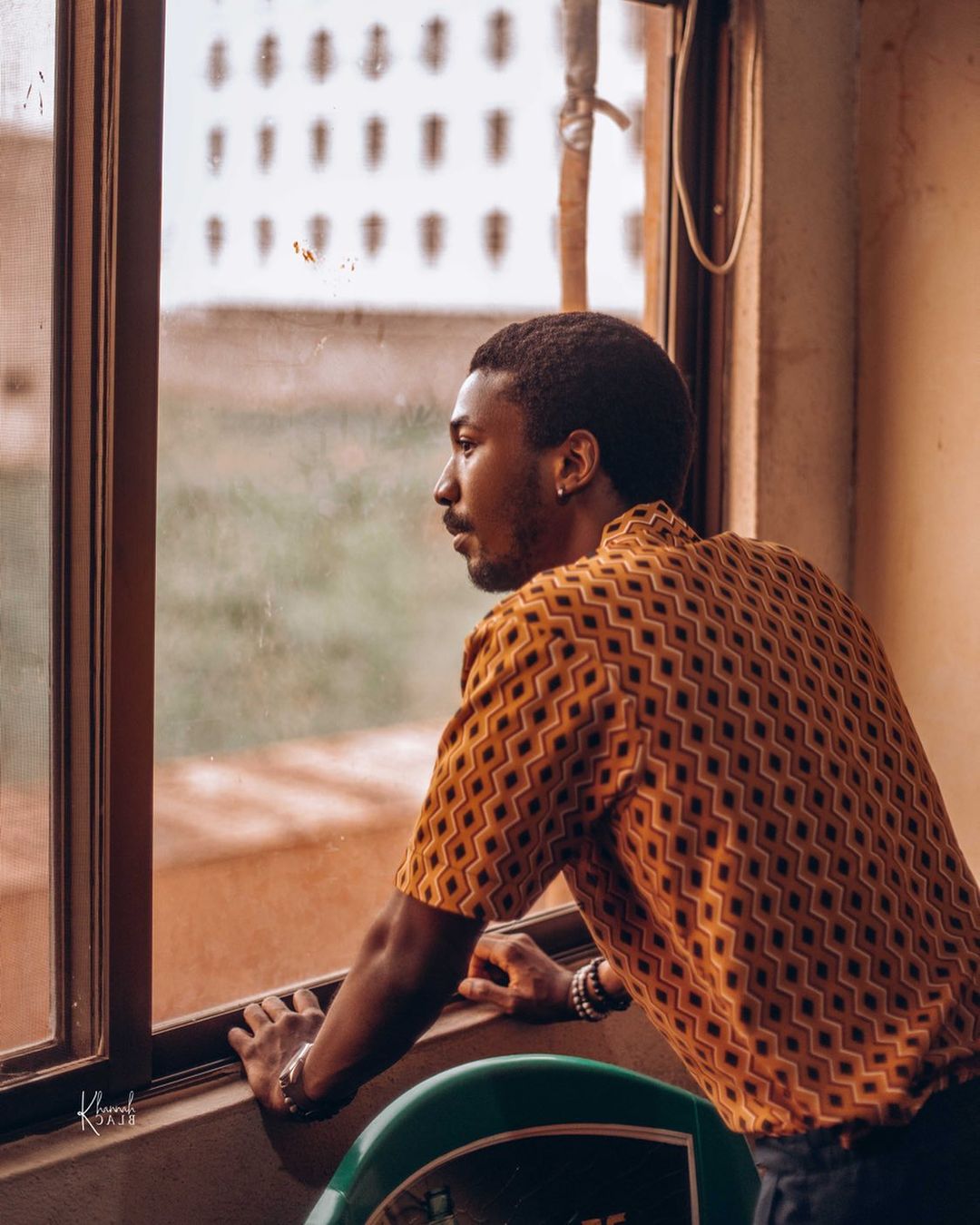
Made Kuti wearing @braimien & @mrdbello| Photography by @khannahblack
What would you be doing if it wasn’t music? Do you plan to venture into that industry in the future?
I really like astronomy. Give me an equation and I will not solve it for you. I also like history so I’m always reading history books that I think can at least make a bit clearer the kind of stuff that I see on a daily basis.
I like to know how things became how they are. Maybe I would have been a historian and would have started doing some research. They’re more like hobbies. But maybe my interest in them as hobbies, if I didn’t have music, would have ignited as passion.
To put it in as well, Made added that “if people can’t come to the show, it’ll be broadcast live on Global Citizen’s YouTube and a few local and regional broadcasters. So everybody should watch!”


